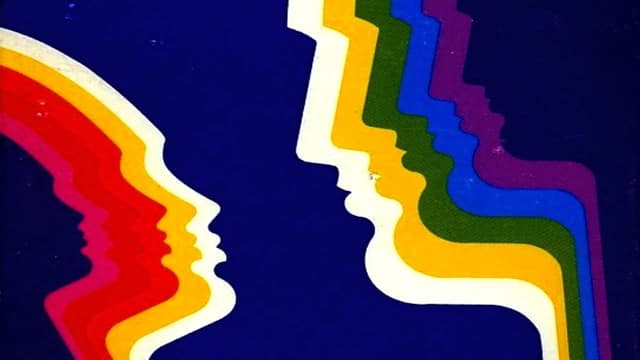Colin Nagy | May 30, 2019
Why is this interesting? - The Lo-Fi Edition
On electronic music, lo-fi, and algorithms shaping our lives
Recommended Products

A track by Ross From Friends that exemplifies the lo-fi house genre, known for its gritty sound, heavy on bass, built from simple synths and samples.
Colin here. Electronic music has always been a mutating genre. What started as a technical and highly intellectual experiment from pioneers like Johanna Beyer who used early computers to make music, has since found itself morphed in the creative hands of folks like Kraftwerk, Derrick Carter, Aphex Twin, and countless others. At the same time it’s been molded by geography (London, Chicago, Detroit, Berlin), physical technology (the MPC drum machine and the Moog Synthesizer to name just two), and, of course, software (from the professional standard Pro Tools to the widely available Fruity Loops, which countless producers have used to hammer out lo-fi beats).
Before the internet, music traveled from city to city via DJ’s record cases and connecting flights. But today, scarcity and the hunt is no more. The kid with an internet connection surfing Tumblr (RIP) or SoundCloud had access to a repository of knowledge and, when putting in the listening time, could truly amass a lot of knowledge. Just listen to the references in a Jamie XX DJ set like this one and note how it spans everything from classic dub, to old school 2-step, to a hyper-modern East London sound seemingly grown in a lab from the future. Everything is stitched together seamlessly and it’s fun to listen to, a testament to his skills as well as the possibility of all this hyper-connectivity.
A new(ish) genre of house music dubbed “lo-fi” emerged in a new and interesting way: the YouTube recommendation algorithm. Rob Arcand at Noisey explains:
Over the last year, the term lo-fi house has become synonymous with a certain gritty sound; it's heavy on bass, yet built from simple synths and samples. With the tight range of tape's natural EQ and a thick cassette-hiss crackle, acts like Ross From Friends, DJ Boring, DJ Seinfeld, and others have found success in a return to form. These producers scrub bare the bloated theatrics of house's recent history with a surprising blend of sounds that feels new, even if it's coming from the past. With staggered seventh-chord pads and overblown kicks that swallow the rest of the mix, tracks like "Talk to Me You'll Understand" cut straight to house's functional center, stacking dance-driven details in intricate blends that can feel as fresh as trax from Chicago's Warehouse days almost forty years ago.
Why is this interesting?
First, this post is intentionally Brier-bait, as it has (i) house music, something Noah loved to DJ (ii) commentary on algorithms shaping culture, and (iii) some McLuhan overtures if you squint enough.
Second, a lot of music fans are consuming their music on YouTube, especially where Spotify isn’t available or they just don't want to pay for it. This isn’t a new behavior: if you remember back to 2007, this was actually the original pre-concierge idea for Songza. What was missing back then, though, was the much maligned related videos algorithm. That bit of code that seems to push quickly to extremism, plays a whole different role in the world of music. Arcand continues:
As the internet has kicked dance music's often faceless, single-driven existence into overdrive, and web-based trends have become more and more banal, lo-fi house, as it exists now, offers an interesting logical endpoint; it's the first "genre" almost entirely indebted to the platform on which it was disseminated.
Simply put, the related videos algorithm, and a few like-minded producers making tracks of a certain aesthetic, made it a thing. One that racked up millions of views and millions of plays. Also, being a producer named “Ross from Friends” or “DJ Seinfeld” probably didn’t hurt, and may even be a subtle nod to gaming the popular searches and recommendation system on YouTube. Once again, “we shape our tools and thereafter our tools shape us.” (CJN)
Chart of the Day:
Back in 2008 I worked on the launch of Chrome with Google. Since then a lot has changed and Chrome now owns the market and Chromium, the open source engine behind it, powers much of the competition (even Microsoft is moving to Chromium this year). With all that said, it’s still shocking to see this breakdown of the market. (NRB)

Quick Links:
Washington Post on the abolitionist history of the Statue of Liberty. “Lady Liberty was originally designed to celebrate the end of slavery, not the arrival of immigrants. Ellis Island, the inspection station through which millions of immigrants passed, didn’t open until six years after the statue was unveiled in 1886. The plaque with the famous Emma Lazarus poem — “Give me your tired, your poor, Your huddled masses yearning to breathe free” — wasn’t added until 1903.” (NRB)
This is a super interesting point about streaming from Kyle Chayka: “new streaming TV / movies is like Zara fast fashion — the pipeline is sped up to the point that when a bunch of commentators say "ROM-COMS ARE BACK!!!" we get 18 of them six months later” (NRB)
Finally got around to reading this March New Yorker piece on what might be the most important paleontology discovery in history. (NRB)
This piece about the challenges about marketing personalization certainly matches my experience talking to brands trying to make it happen. “Often this comes down to simple math. If you target a specific slice of the web population using the powerful segmenting tools at your disposal, you may start with a million prospects. But, for every attribute you apply, you end up slicing that group thinner and thinner. Very quickly, you may find that your sophisticated marketing efforts have led you to a handful of shaving cream enthusiasts in the Pacific Northwest.” (NRB)
Thanks for reading,
Noah (NRB) & Colin (CJN)